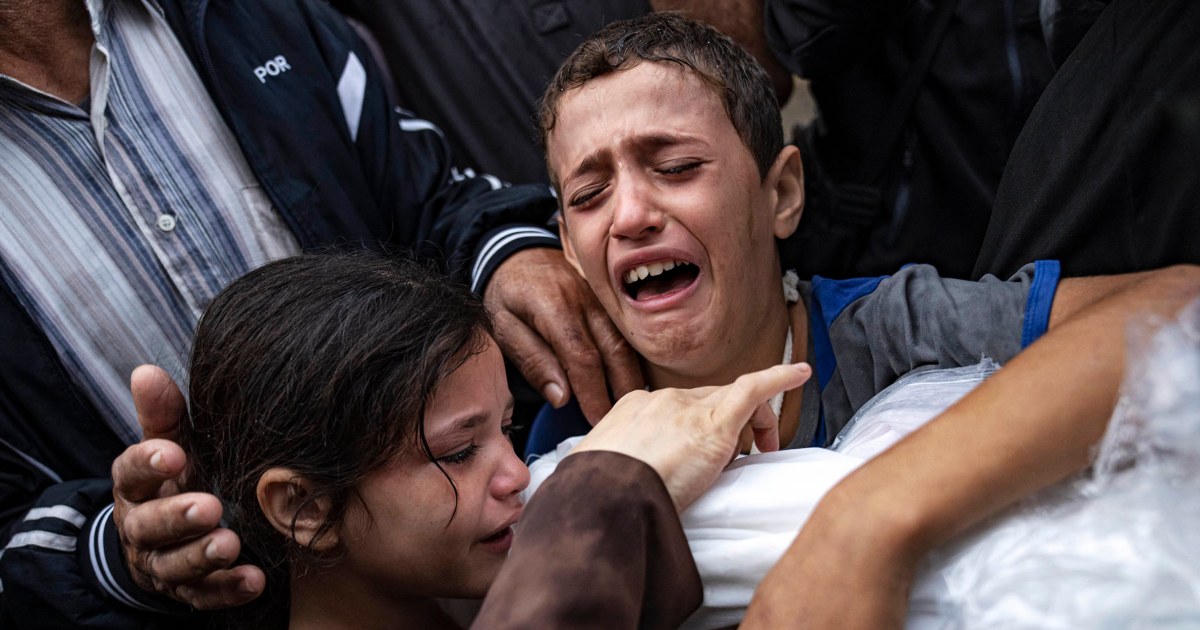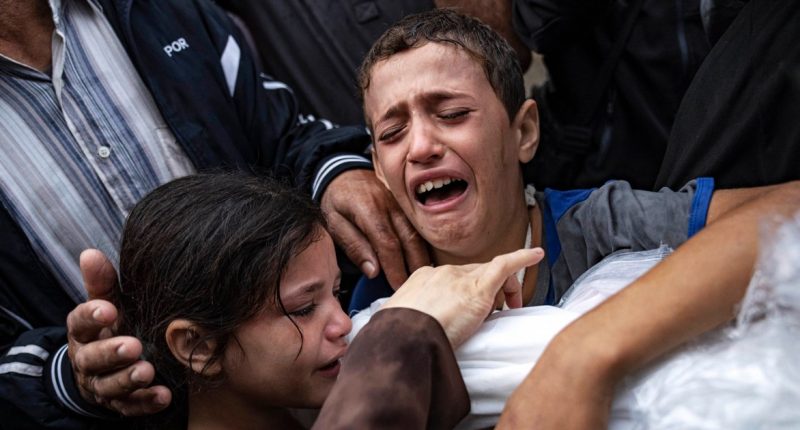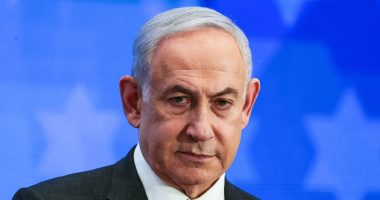
“Today, there is no time for prayers,” Elshorbagy said, referencing the typical afternoon prayers performed collectively ahead of a burial service. “They can’t take him home and say goodbye as it was before.”
With many mosques destroyed or under threat of attack, impromptu funeral prayers are being held in hospital courtyards or on the streets. Attendance is close to none at the burial site itself.
“They bury them fast,” said Abu Obaid, the local videographer.
The moment that families learn their loved ones have been killed are filled with “screams, sadness and shock,” he said.
“It’s excruciating feelings that shake the heart,” he added.
But with news of death or fears of impending death ubiquitous across the enclave, in many cases there is no final goodbye. Abu Obaid said his cousins were killed in an airstrike on their home a week ago, but that he was unable to attend the burial because of ongoing heavy bombardment.
“I was far from the hospital. I couldn’t see any of them,” he said.
Graves and grief
Identifying certain corpses is an ordeal in itself.
Hospital staff and locals say it can take several days before a family member can identify a body because most of the dead have disfigured limbs and “very critical” amputations of hands and legs. Clues like a certain birthmark on their face or the clothing they were wearing have helped some families identify their lost loved ones, Elshorbagy added.
Other times, the morgue worker said they have received 2 to 3 kilograms of “shattered bones or flesh,” which were unidentifiable. In those cases, they were grouped with other dead bodies of known family members and not buried individually, he said.
Some families have resorted to writing their children’s names in marker on their limbs, in the hope they will be identifiable if they are killed. Other families in Gaza have started wearing ID bracelets.
But identifying the dead is only one problem. Finding space to bury them is another.
Jihad Elshamali, a gravedigger at several cemeteries along the Gaza Strip, said he’s worked on burial plots in recent weeks bearing numbers rather than family names.
“Frankly, the situation is very tragic,” said Elshamali, adding he had at times buried up to 15 people in one cemetery plot.
Source: | This article originally belongs to Nbcnews.com










